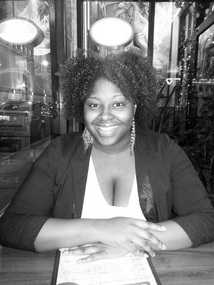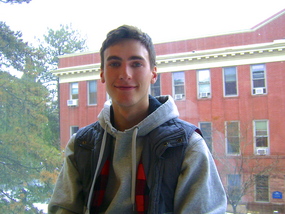For the thousands of graduating seniors across the country, the year after graduation is either a source of excitement or anxiety as they scramble to figure out what to do after college. For the lucky senior, these opportunities may include the ability to travel, or to conduct research on specific international projects. Awarded to students of “unusual promise,” the Thomas J. Watson Fellowship allows graduating seniors a chance to spend a year traveling the year exploring something meaningful to them. Continuing with Carleton’s legacy of producing two or three Watson Fellows per year, two members of this year’s Class of 2013, Charlie Bentley and Robin Wonsley, have been awarded the prestigious fellowship.
Wonsley, a senior Women’s and Gender Studies major from Chicago, IL, will use the grant to study women in prison programs to help people re-enter society in Norway, Ireland, Canada, Ghana and Rwanda. She will also evaluate the success of the programs in these countries. Ideally, she describes the goal of re-entry programs as able “to keep people from returning to the prison through offering programs and services that caters to their needs [and] their concerns,” such as education or the teaching of trades. Women, especially, need childcare as well as other forms of support for their children as they try to re-enter society.
Wonsley became interested in the United States prison system from a young age. “I grew up on the South Side of Chicago, so seeing my own relatives and peers go to prison that was normal, especially from the ages of three to eleven, I spent most of my weekends visiting a relative of mine in prison,” she said.
“Coming here and being around different populations of students and seeing that this is not the norm of my white peers, that’s a problem to me,” she said. “Why this issue is concentrated in communities [such as the one] in which I was raised, which were predominately poor black or working class communities, that’s something that for me needs to be explored.”
Many of her activities in the next year will involve helping out in the women’s lives, such as babysitting their kids and visiting their college classes. “My project is really just rooted in following their day to day activities, and really trying to figure out their insights about [their lives] and about what’s wrong with their prison systems,” she said. Her ultimate goal is to determine how these organizations “can better serve that purpose and better overall serve the needs of the women so they won’t inevitably go back to prison.”
Rather than just passively watching, Wonsley will also engage the women in conversations: “I want to ask them ‘how was your day?’ or ‘how was your meeting with your attorney?’ to get a better insight into their lives,” she explained.
Bentley, a senior Linguistics and Cognitive Science major from Springfield, MO, will use the grant to study the isolation of deaf communities and their marginalization in societies in South Africa, Togo, Ghana and Indonesia. “I want to see how language, and social marginalization through language, has affected perception of these communities,” he said.
He will also work with service organizations to learn about how they help deaf communities. “In South Africa, deaf individuals experience higher rates of HIV infection than hearing individuals, partly because HIV/AIDS education is sometimes insufficient for deaf people,” Bentley said.
“The countries I’ve selected for my project are unique in that their deaf communities, for different reasons, are somewhat easy to locate,” he said. The communities he will be studying exist outside of society in remote rural areas.
These deaf communities then become self-sustaining. “Because of intermarriage in these rural villages, rates of genetic deafness continue to grow. Over time, the community expands and sign language remains the primary mode of communication,” explained Bentley.
Bentley first came into contact with deaf communities in his public high school, which was located in an area of the country that had large deaf population.
“Despite being the school best equipped to include deaf students with an arsenal of assistive technologies and interpreters, there was no inclusion,” Bentley said. For instance, deaf students only studied in a special hallway, and lacked much that the other students had like a student council or school announcements.
This inspired Bentley to learn American Sign Language, ASL, to help the deaf students at his high school. “I thought that was unfair, so I started taking night classes at a community college to learsn ASL. I worked with the school librarians to add captions to the video announcements, and started getting to know some of the deaf students as my knowledge of ASL increased,” he said.
At Carleton, Bentley helped organize the ASL Club. “This really great woman comes to campus once a week and teaches ASL to interested students,” Bentley said.
He believes languages reflect important parts of a society. “I think languages are important because embedded within them are intangible aspects of culture, as well as a window into our cognition,” Bentley said.
Wonsley too has been active at Carleton. Earlier this year, she organized a prison reform day, bringing in Geradine Smith, the first women place on and pardoned from death row in Illinois, to talk about her experiences and insights on the prison system.
The Carletonian congratulates both Wonsley and Bentley, and wishes them best of luck in their year abroad.


